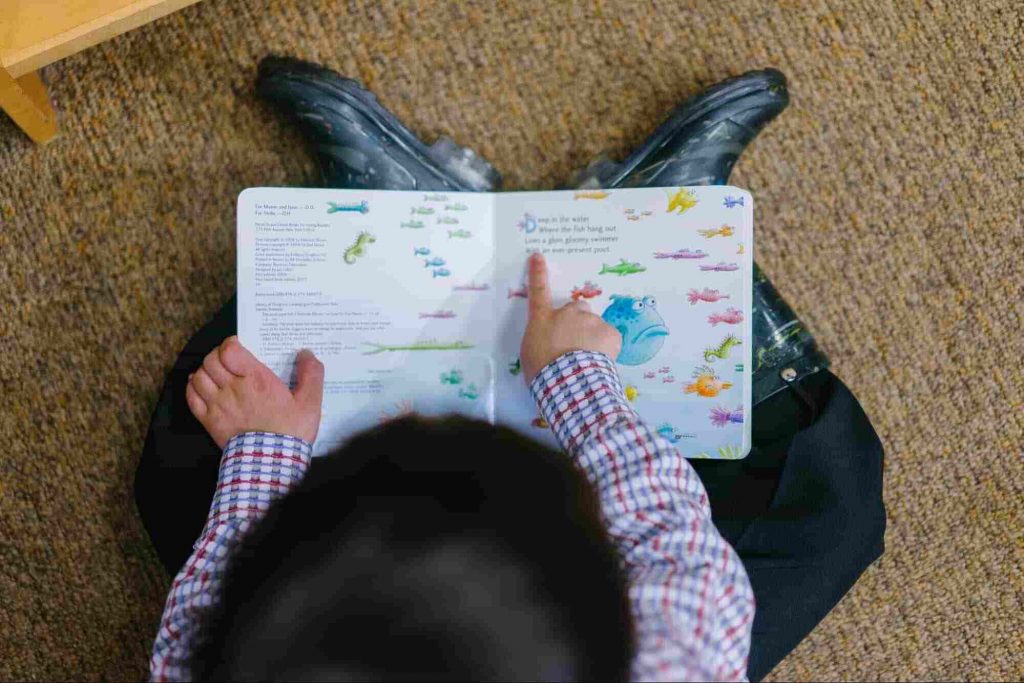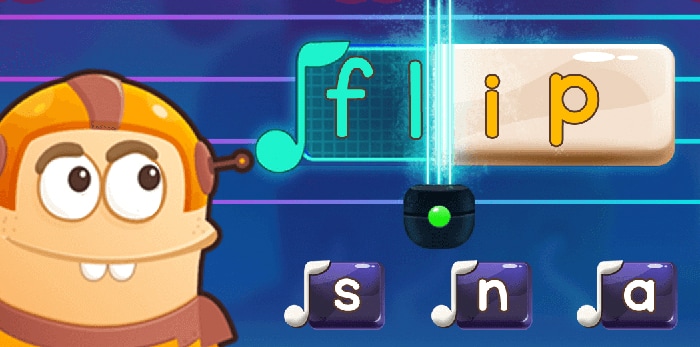If you have a child who is stepping into the world of literacy and reading, then you must be aware of the widely used term “Phonological Awareness”. The term is as puzzling as commonly it is used. It brings along with it a bag of concepts, such as phonemic awareness, phonemes, etc.
Math & ELA | PreK To Grade 5
Kids see fun.
You see real learning outcomes.
Watch your kids fall in love with math & reading through our scientifically designed curriculum.
Parents, try for free Teachers, use for free
That’s why we have brought to you a blog on Phonological Awareness, explaining everything you need to know about it.
Explore more online reading games and writing games for kids that will help with their learning experience and make them smarter.
What is Phonological Awareness?
Phonological awareness is the foundational skill for reading. As the name implies, phonological awareness is related to sounds. It is the ability to identify and distinguish between sounds in a word. It also helps in explaining how sound works in different ways in a word.
Lane & Pullen defines it as “the development of different phonological components of spoken language.” It begins at the very initial stages.
Phonological awareness includes the following skills:
Related Reading: Everything You Need To Know About Phonemic Awareness To Help Kids Master Reading
Rhyming
When a child can identify words ending with the same sound.
Alliteration
Identifying the similar sounds at the beginning of a word.
Syllables
Identifying and segmenting words in a sentence and syllables.
Onset and Rimes
Onset is the beginning sound of the word, and Rime is the ending sound. Both of them are taught so that kids can manipulate the two to read new words. For example, if “C” is changed to “B” with an “AT” in the end, it becomes BAT and not CAT.
Phonemes
Identifying and understanding the smallest unit of sound. For example, the word BAT is made of three sounds.
See this video to understand more about phonological awareness!
Phonological awareness should be taught to children without letters with either blocks or boxes that symbolize the sounds. It is important for children to identify and learn those sounds clearly before moving to their corresponding letters.
After they know the smallest sounds, they can blend them together to read and segment them to spell them better.
Difference Between Phonological Awareness and Phonemic Awareness
The two words are widely used interchangeably. Although they deal with similar skills, they are not exactly the same.
Phonological awareness is an umbrella concept that contains phonics and phonemic awareness. In contrast, phonemic awareness is the ability to understand the “phonemes”- the smallest unit of sound that words make.
For example, the word ‘bat’ has three phonemes: /b/ /æ/ and /t/. When your child can understand and identify different sounds that make up a word, that is called phonemic awareness.
Phonemic awareness is a subset of phonological awareness.
While phonemic awareness is concerned primarily with the phonemes, phonological awareness encompasses the sounds of words, syllables as well as phonemes. Phonemic awareness, then, becomes one of the stages of phonological awareness.
We can teach phonemic awareness to kids without any letters as it focuses more on making them aware that there are sounds that can be blended, segmented, and manipulated in any word.
Related Reading: How to Teach Reading to Kids: Best Strategies for Parents
Importance of Phonological Awareness
Phonological awareness is one of the most important foundational skills that a child needs, not just for reading but for writing as well.

To read and write words, it is essential for children to develop phonological awareness. It helps them understand that words are made up of phonemes, that there are syllables in a word, and how, by changing these sound parts, the word changes.
If a child cannot understand that each word is made of different sounds (phonemes) and each phoneme represents a different letter, they will not be able to read or write.
This helps them to understand phonics, i.e., the sound and its corresponding spelling. A child with weak phonological awareness becomes a weak reader. Difficulties with phonological awareness can be seen as a precursor to reading disabilities or speech disabilities.
Check out these phonics games to help your kids understand concepts of ELA deeply. These games are made especially for the little ones to enter the world of reading confidently.
Dr. David Kilpatrick emphasizes the importance of phonological awareness by saying, “Students with good phonological awareness are in a great position to become good readers, while students with poor phonological awareness almost always struggle in reading.”
Developing strong competencies in phonological awareness is important for all kids, as the awareness of the sounds in words and syllables is critical to hearing and segmenting the words that they want to spell and blending together the sounds in the words kids read.
4 Indicators of Strong Phonological Awareness:
- The ability to recognize rhyme patterns
- Segment the words into syllables
- Blend phonemes
- Identify, segment, and manipulate the beginning and ending sounds.
As we know the importance that phonological awareness plays in the learning journey of kids, we have developed games and activities that will help you build strong phonological awareness in your kids. SplashLearn also has live ELA courses to help your kids become competent readers and writers.
Discover more educational resources for children online to enhance their learning and help them become smarter.
























